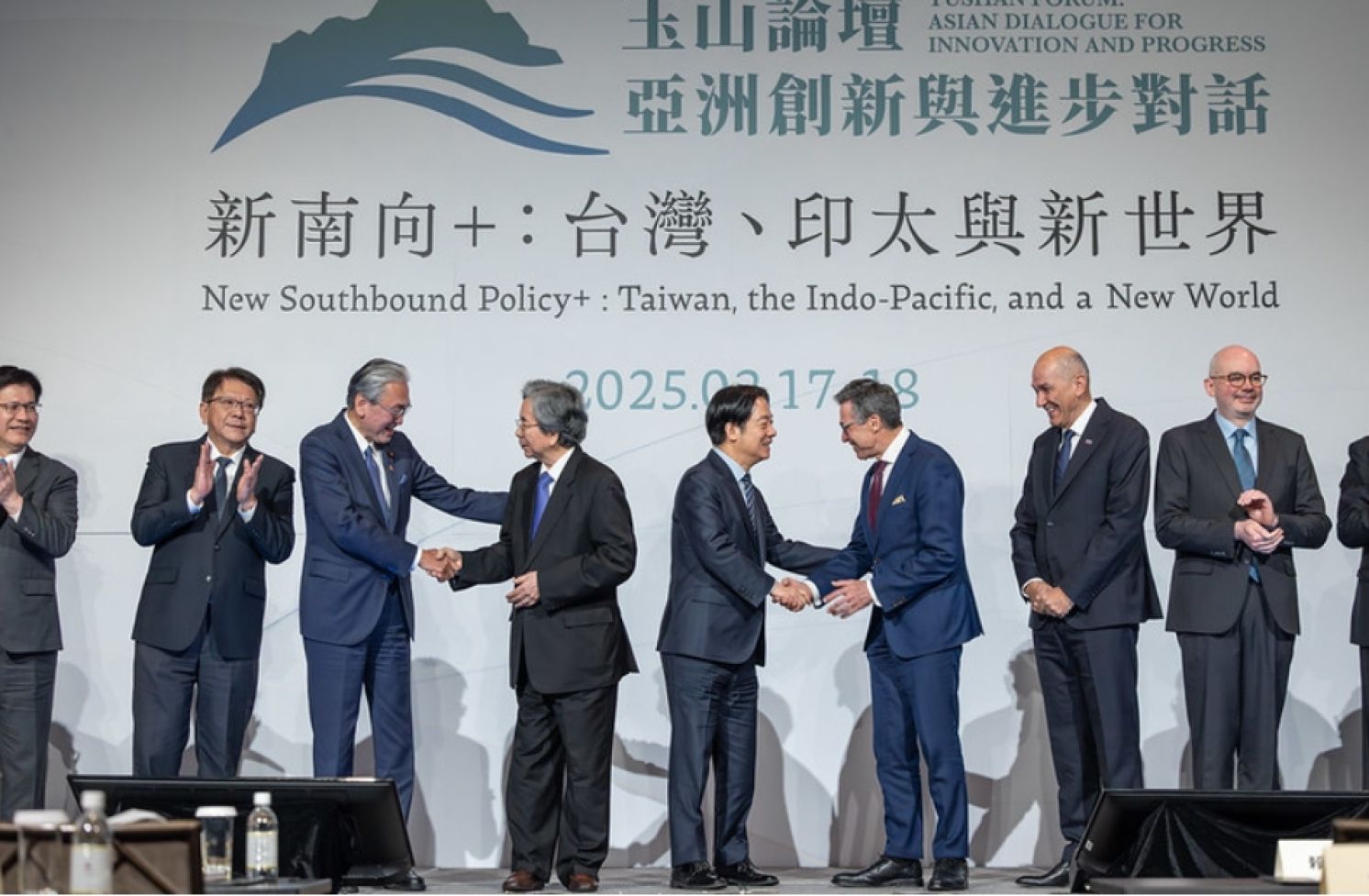
TSMC Forced to Move to the U.S.: Lai Administration Spins It as "Eastward Expansion"
The Storm Media Editorial, March 19, 2025
After President Lai Ching-te called for an "Eastward Expansion" at the Yushan Forum, where skepticism towards the United States was pervasive, senior officials of the Democratic Progressive Party (DPP) began competing in rhetoric. They mythologized the Taiwan Semiconductor Manufacturing Company’s (TSMC) investment in the United States as a grand conquest and natural expansion, while even Taiwan’s representative to the United States seemed more like an envoy assisting American interests. He agreed to TSMC’s most advanced chip production taking place in the United States, with progress already surpassing that of Taiwan. Amidst all the enthusiasm, no one discussed how to ensure Taiwan’s industrial roots remain strong or how to sustain private investment momentum. No wonder public opinion surveys indicate mixed feelings about TSMC’s move to the United States.
TSMC Chairman C. C. Wei and U.S. President Donald Trump announced earlier this month that TSMC would invest an additional $100 billion in the United States. Shortly after, in a media interview, Trump praised Wei as "one of the most respected business leaders" but then unilaterally increased the investment figure to $200 billion. Various interpretations of this statement circulated, yet the Lai administration remained completely silent, leaving TSMC to respond discreetly: "All announcements will be as stated."
The more TSMC expands its U.S. investment, the greater the concern that it will become "USMC." However, the DPP administration seems oblivious to this crisis. Even when Anders Fogh Rasmussen, former secretary-general to the North Atlantic Treaty Organization (NATO) and former prime minister of Denmark, warned at the Yushan Forum that "under a Trump administration, we can no longer rely on the White House," President Lai still pushed for "Eastward Expansion," encouraging Taiwan’s industries to move beyond past strategies of "Westward Expansion," "Southbound Policy," and "Northern Cooperation" to actively establish a presence across the Pacific and beyond, transforming U.S. skepticism into relocation to the United States.
As Lai Ching-te set the tone for this relocation movement, Arizona Governor Katie Hobbs visited Taiwan again to invite TSMC’s supply chain to invest in the United States. DPP officials eagerly echoed this call in the Legislative Yuan, as if composing a symphony for the "Eastward Expansion March." However, the administrative team delivered an awkward performance: Minister Liu Chin-ching of the National Development Council described it as "a conquest," while Minister of Economic Affairs Kuo Jyh-huei said, "We are growing branches from a strong tree!" Meanwhile, Premier Cho Jung-tai, unable to find a fitting idiom, simply stated that the supply chain must stand alongside TSMC, dubbed the "sacred mountain which protects the nation." Their collective stance suggests they are determined to ensure Governor Hobbs leaves Taiwan with abundant promises in her diplomatic baggage.
It seems Mr. Trump’s claim that TSMC will expand its U.S. investment to $200 billion is not entirely unfounded. With President Lai’s timely push for "Eastward Expansion" and the enthusiastic response from his administration, it is only a matter of time before the Office of the President establishes an "Eastward Expansion Office" to meet Trump’s demand for the $200 billion investment target.
What is truly surprising is Ambassador Alexander Yui, Taiwan's representative to the United States. Although he has no direct oversight over the semiconductor industry, he told the Wall Street Journal that not all TSMC chips can be produced in Taiwan. He explained that while R&D and initial production of the most advanced chips would happen in Taiwan, once the technology matures, manufacturing could take place elsewhere, including the United States. Yui also stated that integrating Taiwan’s semiconductor industry into the global supply chain would strengthen ties between Taiwan, the United States, and other countries, effectively upgrading Taiwan’s "Silicon Shield" into a "Silicon Fortress."
Ambassador Yui’s concept of upgrading from a "Silicon Shield" to a "Silicon Fortress" is certainly more imaginative than Liu Chin-ching’s "conquest" metaphor or Kuo Jyh-huei's "branching tree" analogy—perhaps even worthy of winning the rhetorical competition among DPP officials. However, the "sacred mountain protecting the nation" still requires conservation; without proper environmental safeguards, even the strongest foundation can erode and lead to disaster. Liu himself inadvertently admitted a harsh truth: While he believes TSMC can protect itself, the Lai administration is ultimately powerless to provide any substantial assistance.
A poll conducted by the Taiwan Public Opinion Foundation (TPOF) found that 43 percent of respondents welcome TSMC’s additional $100 billion investment in the United States, while 44 percent oppose it, reflecting a stark divide. Watching Mr. Trump aggressively seize Taiwan’s private investment momentum for his own benefit while the government remains totally unalert—choosing instead to accelerate cooperation—perfectly explains why the public is torn between hope and anxiety.
From: https://udn.com/news/story/11091/8617912
〈Back to Taiwan Weekly Newsletter〉